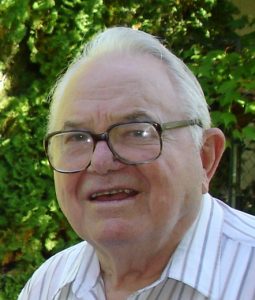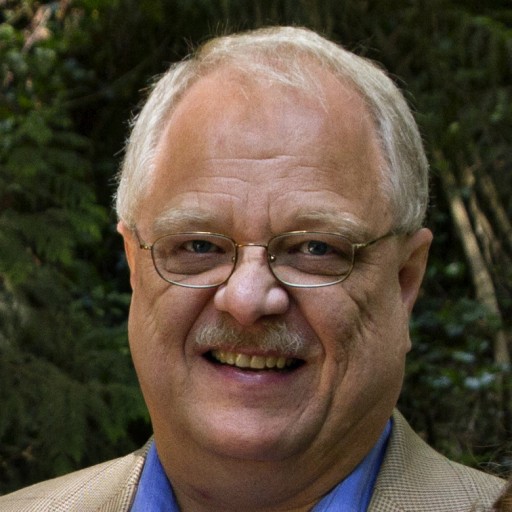Today’s Decisions, Tomorrow’s Needs
 My father died six years ago at age 92. For 31 of those years, he served as a pastor in the Church of the Nazarene. He went to his first congregation in Broken Bow, Nebraska, in 1943. The congregation paid him $10 per week ($138 in today’s dollars) and rented a house for $15 per month. I remember my mother telling the story about their first winter. My older brothers stayed in bed most of the time, because the cold winter winds lifted the rugs on the floor of our home.
My father died six years ago at age 92. For 31 of those years, he served as a pastor in the Church of the Nazarene. He went to his first congregation in Broken Bow, Nebraska, in 1943. The congregation paid him $10 per week ($138 in today’s dollars) and rented a house for $15 per month. I remember my mother telling the story about their first winter. My older brothers stayed in bed most of the time, because the cold winter winds lifted the rugs on the floor of our home.
Now, for the first time, I’m hearing other stories. My brother has a business card that shows my father had a custom butchering business while pastoring in Broken Bow. He also sold meat cutting tools. Sometimes he brought home beef liver or tongue if a customer did not want them. Dad raised rabbits, hunted pheasants, and worked a backyard garden to provide food for the family.
Before we moved to Oregon in 1959, Dad served the congregation in Grand Island, Nebraska, for ten years. I recently learned that while in Grand Island, Dad built two new houses and purchased at least three buildings to remodel and sell. It seems bivocational ministry has been around longer than I thought.
I never talked to Dad about how he viewed retirement when he was in his 40s and 50s. I suspect it rarely crossed his mind. I know of no retirement planning he did before he was in his 60s.
Retirement Readiness
Data suggests that other pastors today are in a similar situation. In a recent study of the retirement readiness of 1,815 senior U.S. pastors in the Church of the Nazarene, only 24 (1.3 percent) were on target to have adequate resources for retirement before age 66. Further, only 146 (8 percent) were expected to be financially ready for retirement before age 70. The study estimated that 765 pastors (42.1 percent) would need to work past age 75 to have enough funds for retirement.
A recent report shows that in 2015 more than half of the active lead pastors in the Church of the Nazarene in the United States were 55 years or older. Might this demographic be correlated with a lack of retirement readiness? Could it be some pastors continue to work because they must have the income?
When this topic comes up in conversation, there are some who quickly blame the denomination for not providing for pastors in retirement. These persons seem to miss the fact that the polity of the Church of the Nazarene places responsibility for pastoral salaries and benefits on local congregations. If the church board does not consider some type of deferred compensation program to help a pastor prepare for the retirement years, it doesn’t get done. The denomination provides the tax-favored structure for saving with the Nazarene 403(b) Retirement Savings Plan, but funding it is primarily the responsibility of the local congregation.
I have talked with pastors who have taken the initiative with their church boards to send monthly contributions to their retirement account. I suspect that many more pastors should get the ball rolling. Their future financial security depends on it.
God’s Provision
I expect that if I had talked with Mom and Dad about retirement, they would have, in some way, indicated their trust in God’s provision. As teenagers during the Great Depression, living in the region labeled the Dust Bowl, they knew people could survive extremely difficult circumstances. As people of faith, their thanksgiving would be directed to God who cares for His children.
As I look at the final years of my parents’ lives, God’s provision came mostly from beyond the church. Dad left pastoral ministry at age 56. He taught in the public school system long enough to be vested in a public employees retirement program. His compensation for teaching was three times his previous salary, so that increased his Social Security benefit in retirement. He used materials from buildings he dismantled to construct a house of his own after living in parsonages for all of his pastoral service. Mom and Dad raised chickens and rabbits. They had a 50’ x 100’ garden plot for vegetables, in addition to fruit trees, berry canes, and grape vines. They also provided food for the next door widow and her son with disabilities. They lacked nothing; the Good Shepherd provided what they needed.
As I reflect on current conversations about bivocational ministry and retirement readiness, especially in light of what I have recently learned about my father, it occurs to me that previous generations of pastors faced similar circumstances. In some ways, pastoral ministry is vastly different than when I started in the late 1970s. In other ways, however, we seem to be going through territory similar to what the faithful in previous generations traversed.
I recognize that I lack the diversity of skills my father had. I know little about managing a garden plot and nothing about butchering a chicken. I pay someone else to do those things when I shop at the grocery store. For me, retirement readiness depends on investing today for the needs of tomorrow. As was the case with Joseph preparing for the famine in Egypt, I believe God will provide through the decisions I make today.

